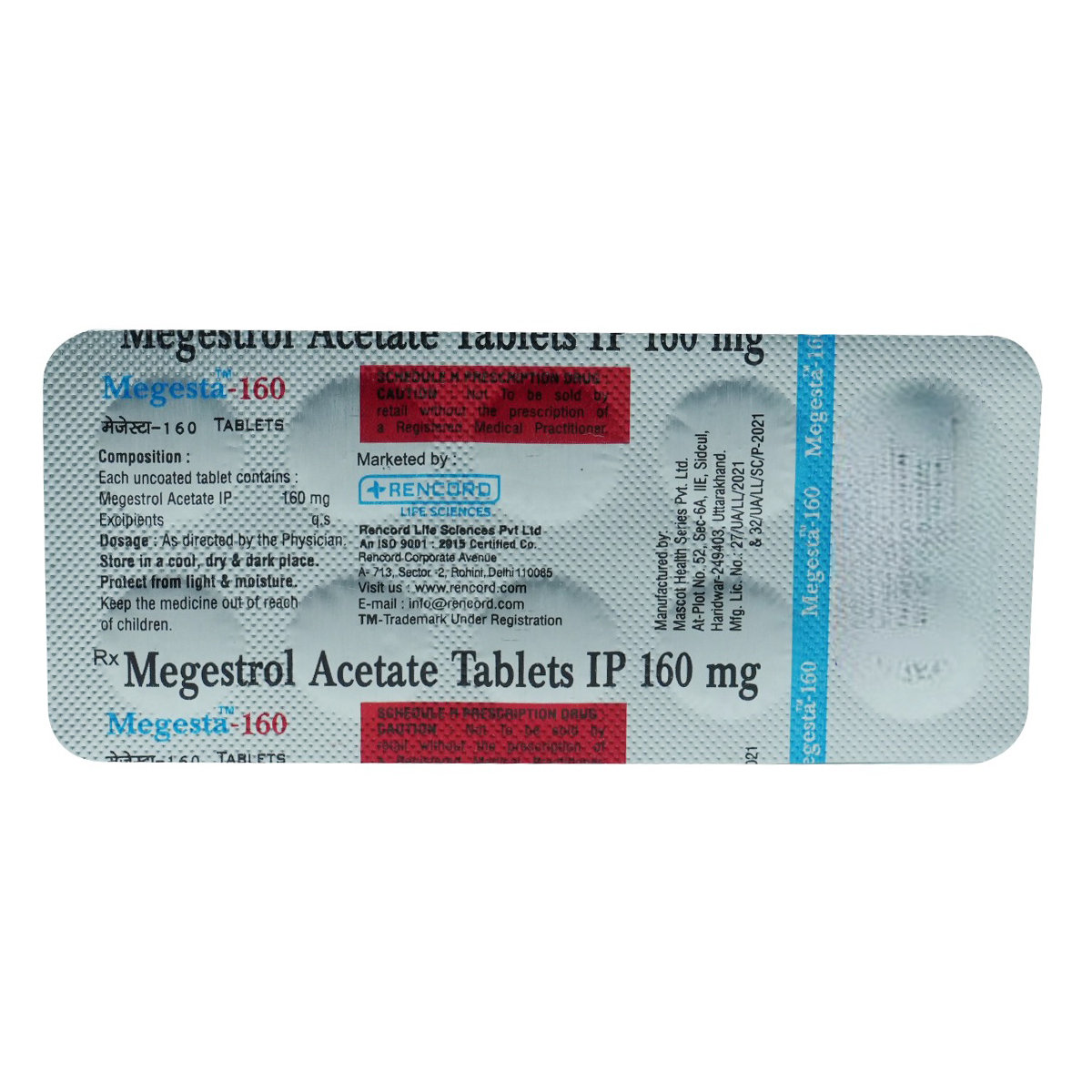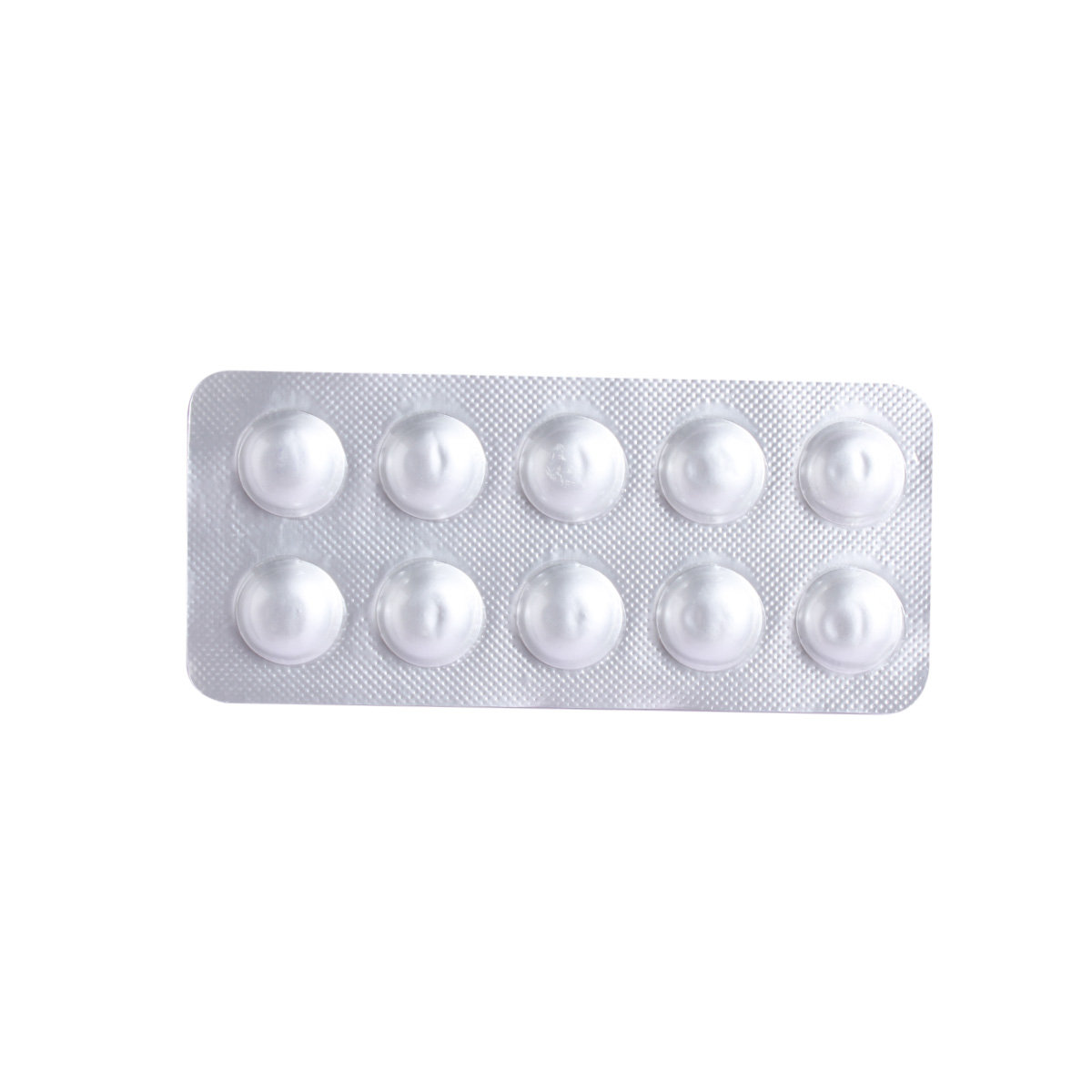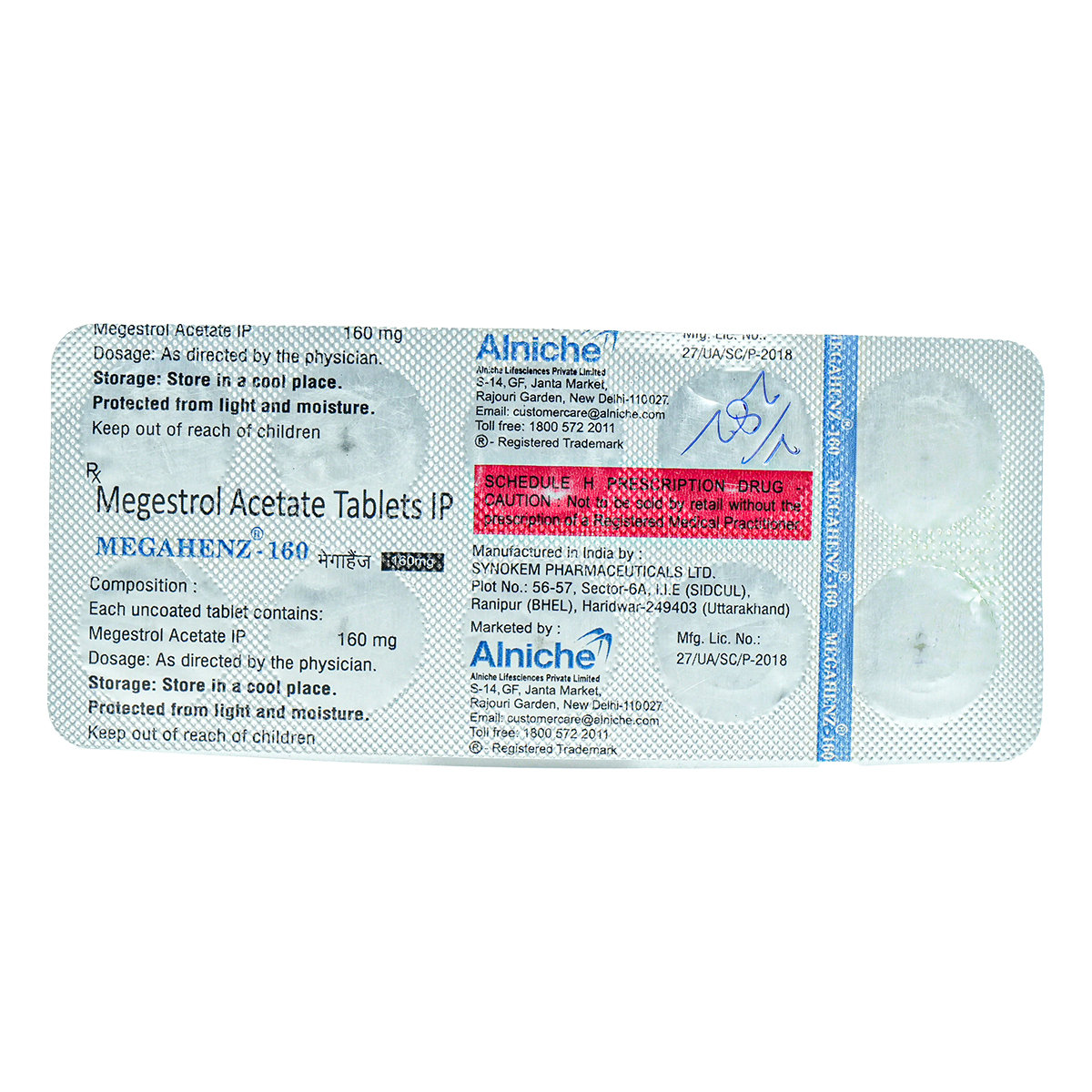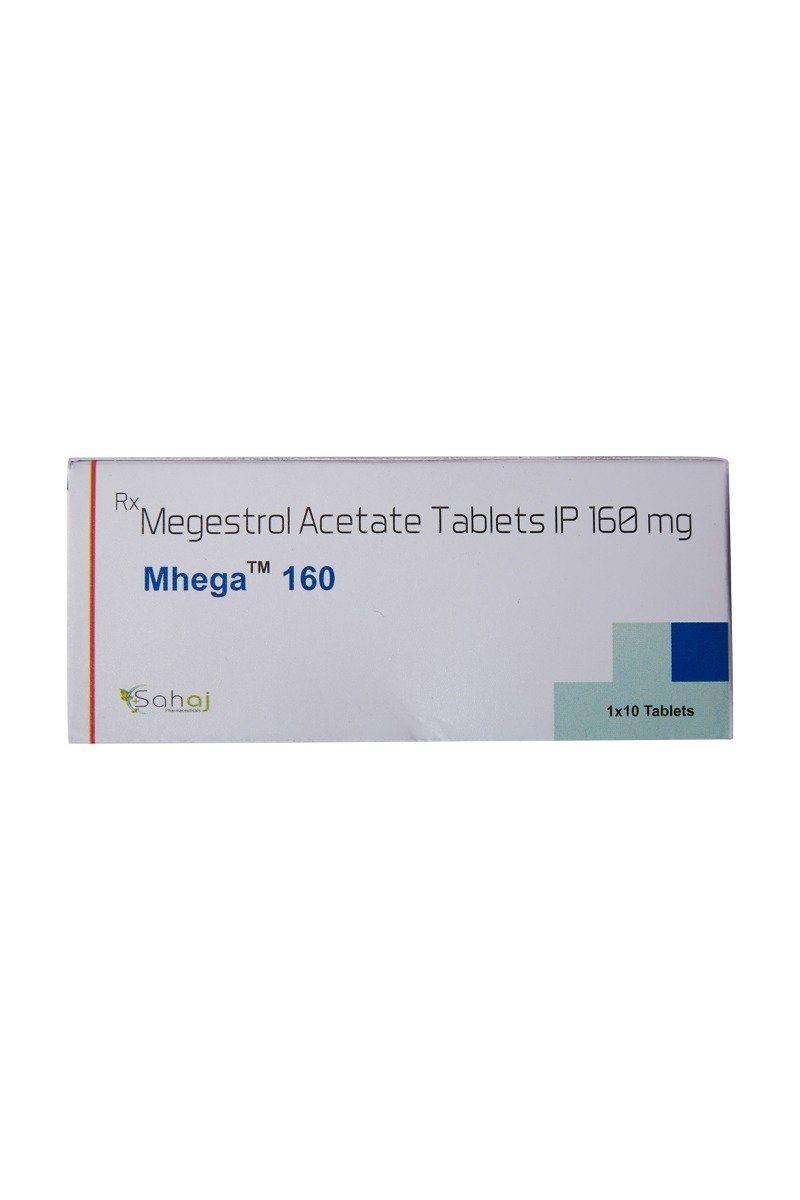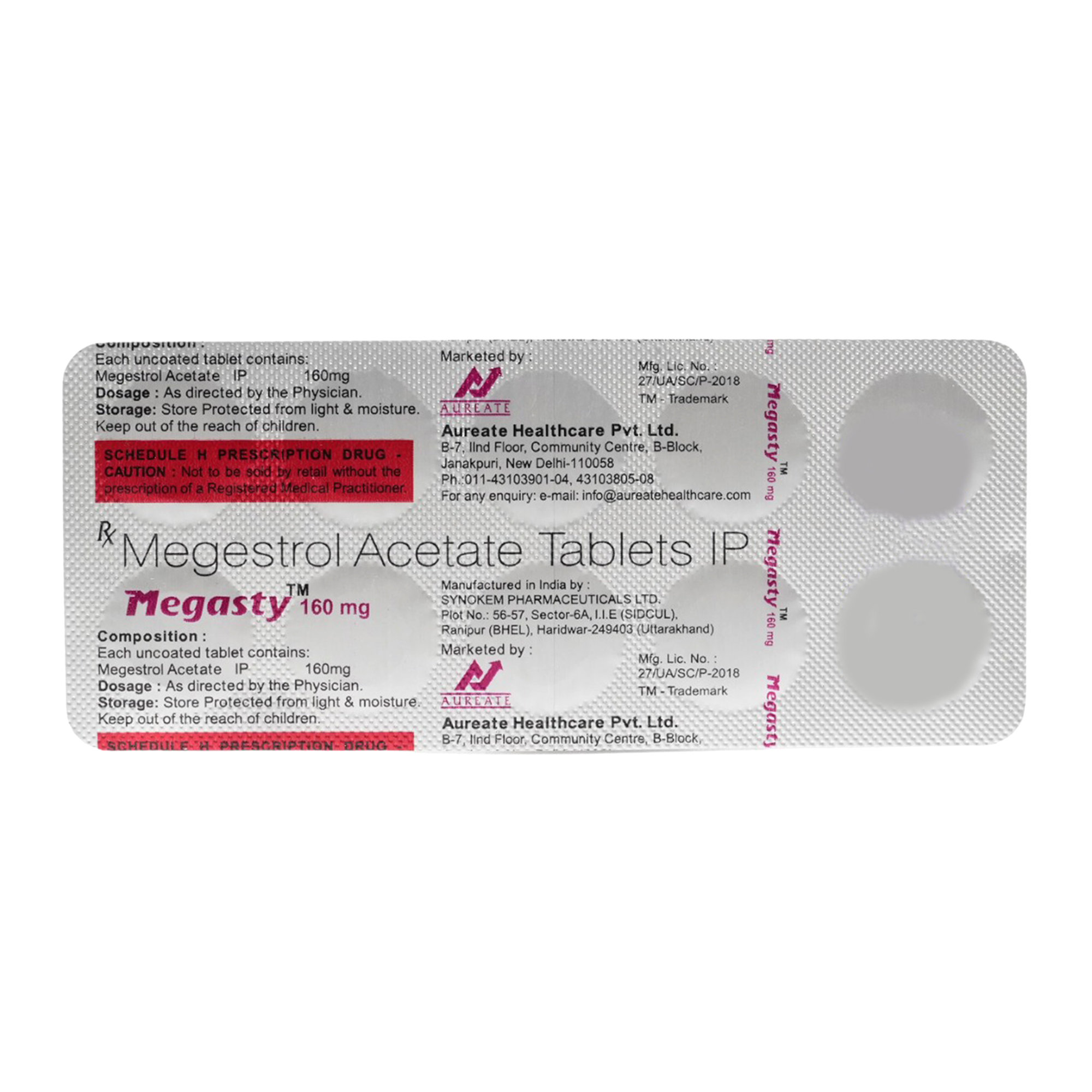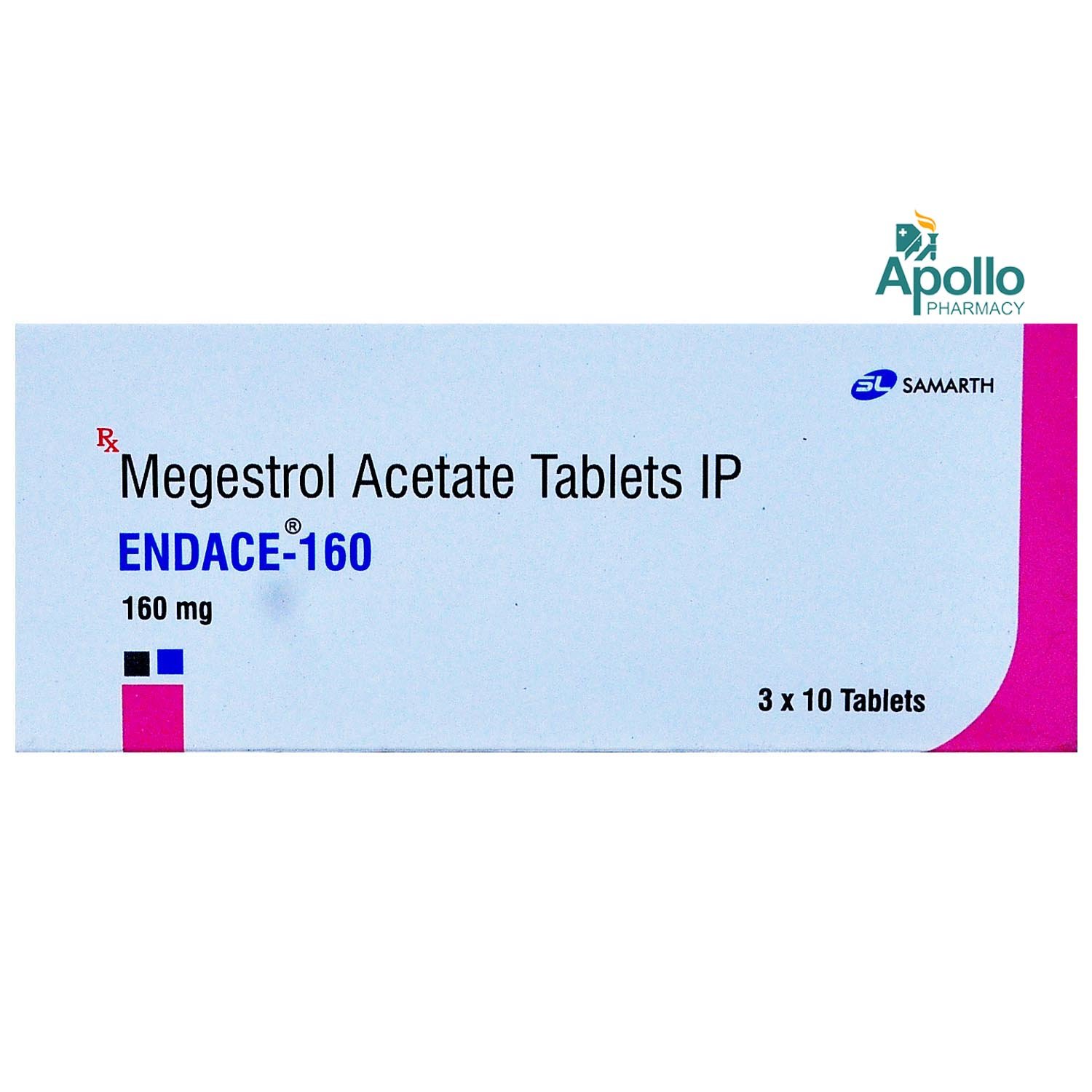Megetra 160 Tablet 10's
MRP ₹750
(Inclusive of all Taxes)
₹112.5 Cashback (15%)
Provide Delivery Location
Online payment accepted
 Prescription drug
Prescription drugWhats That
Composition :
Manufacturer/Marketer :
Consume Type :
Expires on or after :
Return Policy :
About Megetra 160 Tablet
Megetra 160 Tablet belongs to a class of medications called ‘Progestogens’ used as a symptomatic treatment in patients with breast cancer and endometrial cancer. Breast cancer develops in cells of the breast cells characterized by a lump in the breast, a change in the shape of the nipple or breast, and bloody discharge from the nipples. Endometrial cancer is the cancer of the womb's lining (uterus), characterized by pelvic pain, bleeding between periods, and pain during sex.
Megetra 160 Tablet contains ‘Megestrol’, which belongs to the class of ‘Progestogens’. It works similarly to the female hormone ‘progesterone’. It interferes with the production or action of hormones involved in cancer growth. This effect helps to slow down the progression of cancer and reduce the symptoms associated with cancer.
Megetra 160 Tablet is available in the form of a tablet and oral suspension. You should take this medicine exactly as prescribed by your doctor. The common side-effects of Megetra 160 Tablet are an increase in appetite, weight gain, shortness of breath, hot flushes (reddening of the face and neck), high blood pressure, increased blood sugar levels, rounded face, constipation, and swelling of a vein due to a blood clot. If any of these side effects persist or get worse, inform your doctor immediately.
Do not take Megetra 160 Tablet if allergic to Megestrol or any contents. Before taking Megetra 160 Tablet , inform your doctor if you have severe liver problems, a history of thrombophlebitis (blood clots), stroke, adrenal gland disorder, and diabetes. Megetra 160 Tablet should be used with caution in elderly patients. Megetra 160 Tablet is not recommended for children, pregnant women, and breastfeeding mothers. Do not consume alcohol, as it may increase the risk of side effects. Megetra 160 Tablet may not affect your ability to drive.
Uses of Megetra 160 Tablet
Directions for Use
Key Benefits
Megetra 160 Tablet contains ‘Megestrol’, which is used in the treatment of breast cancer and endometrial cancer. It acts by interfering with the production of hormones that cause the development of cancer. It helps to reduce the symptoms of cancer effectively. It can also be used to treat loss of appetite in patients with HIV/AIDS.
Storage
Drug Warnings
Megetra 160 Tablet increases the risk of blood clots, so it should be used cautiously in patients with a history of thrombophlebitis. Also, if you notice impaired coordination, difficulty speaking, pain in the groin, pain in the arm or leg (especially in the calf of the leg), shortness of breath, general weakness, headache, and dizziness, inform your doctor immediately as it may be a sign of blood clot. Megetra 160 Tablet is not recommended for use in pregnancy. Use a reliable contraceptive method to prevent pregnancy while using this medicine. You may also need to take a pregnancy test before using this medicine. Megetra 160 Tablet contains lactose, so inform your doctor if you have an intolerance to any sugars.
Diet & Lifestyle Advise
- Eat a healthy diet. Avoid fast food, fried food, processed meats, refined carbs, and added sugar.
- Drink plenty of fluids and eat fibre-rich food to prevent constipation.
- Manage your weight. Shed excess weight by exercising regularly if you are obese or overweight.
- Wear loose, layered clothing during the nighttime, especially in warm weather. This prevents hot flushes.
- Include leafy vegetables, citrus fruits, fatty fish, berries, yoghurt, apples, peaches, cauliflower, cabbage, broccoli, beans, herbs, and spices.
- Get optimal sleep; rest well.
- Avoid smoking and alcohol consumption.
Side Effects of Megetra 160 Tablet
- Increase in appetite
- Weight gain
- Shortness of breath
- Hot flushes (reddening of the face and neck)
- High blood pressure
- Increased blood sugar levels
- Rounded face
- Constipation
- Swelling of a vein due to a blood clot
Habit Forming
Therapeutic Class
All Substitutes & Brand Comparisons
RX
Megesta-160 Tablet 10's
Rencord Life Sciences Pvt Ltd
₹609
(₹54.81 per unit)
18% CHEAPERRX
Megacet 160 mg Tablet 10's
Mediart Life Sciences Pvt Ltd
₹649.5
(₹58.46 per unit)
13% CHEAPERRX
Megpro 160 Tablet 10's
Hospimax Healthcare Pvt Ltd
₹700
(₹63.0 per unit)
6% CHEAPER
FAQs
Drug-Drug Interactions Checker List
- DOFETILIDE
- WARFARIN
Special Advise
- If you are undergoing surgery, inform your doctor that you are taking Megetra 160 Tablet as it may interfere with the healing process.
- Please do not stop taking Megetra 160 Tablet without discussing it with your doctor.
- Your doctor may advise you to monitor blood pressure regularly and take blood tests to evaluate liver and kidney function while using Megetra 160 Tablet .
Disease/Condition Glossary
Breast cancer: It is a type of cancer that develops in breast cells. Breast cancer may form in lobules (glands that produce milk), ducts of the breast (the pathway that brings milk from glands to the nipple), fatty tissue, or the fibrous connective tissue within the breast. Symptoms include a lump in the breast or tissue thickening which feels different than the normal surrounding tissues, breast pain, redness, swelling, nipple discharge other than breast milk, bloody discharge, unexplained change in shape, size, or appearance of the breast, peeling, flaking or scaling of the skin, and a lump or swelling under the arm. The risk factors of breast cancer are increasing age, family history of breast cancer, and obesity.
Endometrial cancer: It is a type of cancer in which the endometrium (lining of the womb or uterus) is affected. It is usually seen in women above the age of 55 years. Symptoms include bleeding between periods, pelvic pain, and pain during sexual intercourse. Endometrial cancer risk factors are increasing age, obesity, never been pregnant, family history of cancer, and diabetes. This condition is not life-threatening when it is diagnosed and treated in the early stages.

Have a query?
Alcohol
Safe if prescribed
Alcohol consumption may increase the risk of side effects and worsen the disease. So, avoid alcohol consumption while using this medicine.
Pregnancy
Consult your doctor
Megetra 160 Tablet should not be used in pregnant women as it may cause birth defects in the unborn baby. Women who are of childbearing potential should obtain a negative pregnancy test before using this medicine.
Breast Feeding
Consult your doctor
Megetra 160 Tablet is not recommended for use in breastfeeding as it may pass into breastmilk and harm your infant.
Driving
Safe if prescribed
Megetra 160 Tablet may not affect your ability to drive.
Liver
Consult your doctor
Megetra 160 Tablet should be used with caution if you have liver disease. Your doctor may adjust the dose or prescribe a suitable alternative based on your condition.
Kidney
Consult your doctor
Megetra 160 Tablet should be used with caution if you have kidney disease. Your doctor may adjust the dose or prescribe a suitable alternative based on your condition.
Children
Safe if prescribed
Megetra 160 Tablet is not recommended for use in children below 12 years of age.




